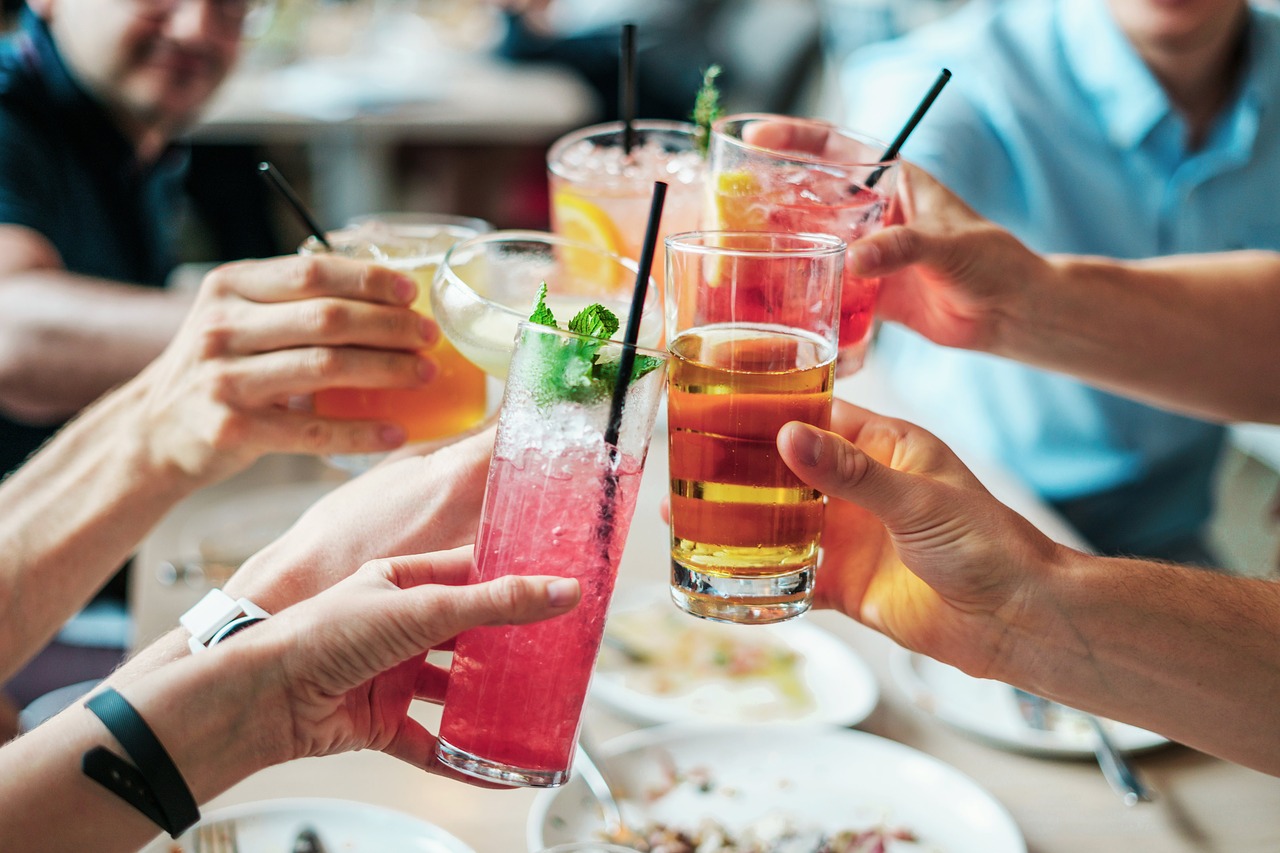As the year draws to a close, Americans and billions of other people of all faiths will celebrate Christmas or at least one of the other several holidays of the season. Though specific observances may differ from culture to culture, the spirit of community, family, gratitude, and hope ties most of them together.
Another thing that ties many year-end holidays together is feasting, an ancient tradition that dates back to antiquity, usually done to mark the end of the harvest season. And where there are feasts, alcohol is almost always present. And where there’s alcohol, the potential for problems will always be there.
This pattern holds true throughout the world, wherever alcohol is a part of the celebration. According to the National Institute on Alcohol Abuse and Alcoholism, holiday drinking accounts for a predictably sharp rise in avoidable emergency room visits, violence, and deaths due to exposure.
Long-term consequences abound, as well. Drug rehabs in Dallas report that patients with drinking problems often have problems with relapses around the holiday season, mostly thanks to permissive attitudes towards celebratory drinking. Cases of trauma, depression, anxiety, and alcohol use disorder (AUD) disproportionately have causes stemming from events that occur during Christmas, Thanksgiving, and New Year’s.
If you have children in your household, there’s even more reason to be wary about your alcohol consumption during the holidays. Below are a few reasons why you should consider drinking less or even cutting alcohol out of the festivities altogether.
1.) Early Experiences Can Influence Children’s Attitudes to Alcohol
If you have kids, this should be the only reason you need. Multiple studies over the decades have demonstrated that children of parents with AUD are likely to develop drinking problems themselves in their teens and throughout the rest of their life.
What’s more, due to the plasticity of children’s brains, drinking habits that are developed in one’s childhood or teens are typically much harder to treat compared to one that is developed later in life. These habits can be brought on or reinforced when parents regularly express an approving attitude towards alcohol.
Though genetics does play a role in predicting whether or not a child will eventually develop AUD or other mental health conditions, parents can still do their part by helping their children avoid the preventable environmental factors that lead to AUD.
2.) The Holidays Are A Time For Family
Let’s face it — we don’t usually drink during the holidays to make our spouse, partner, or children feel better. When we drink during Christmas or New Year, it’s something we do for ourselves. While there’s nothing wrong with enjoying yourself, having children presents you with a responsibility to look out for their best interest. Part of this is ensuring that you do not play a role in creating a future mental health issue.
3.) You’ll Avoid Tainting Your Children’s Memories
A troubling proportion of individuals with familial have negative memories tied to the holidays, quite often due to instances of drug and alcohol misuse by their parents or guardians. These instances often stem from celebratory drinking gone wrong.
While most casual celebratory drinking is probably fine, parents with a history of AUD or related mental health issues should probably refrain from indulging if they have children in their home. This will not only help keep children’s memories of the holidays positive, but it can prevent them from experiencing traumatic annual reminders.
4.) Alcohol Can Wreak Havoc on Your Mental and Physical Health
Any meaningful reduction in alcohol consumption will reduce ones’ chances of developing an AUD or other illness like liver cirrhosis, oesophageal cancer, or heart disease.
Even high-functioning people with AUD will eventually see a toll on their health. By the time these effects become evident, they may experience an undue burden given the complexity and cost of treating advanced health issues. If you have children, seeing you suffering from an alcohol-related disease may lead to a traumatic experience for them as well.
5.) You Don’t Want A Hangover on Christmas Day
Christmas morning is just about the worst time of the year to be having a hangover with kids in the house. By not drinking, you can avoid the hangover and better focus on making this time of the year truly memorable and magical for your children.
Anyways if you decided to drink and celebrate the holiday just try not to get drunk. It is important to keep your body hydrated while drinking because that helps to feel good the next morning. You can get hydrated by just drinking water, but if you already have a hangover, you can try intravenous therapies which help your body to recover more quickly and fill it with the necessary hydration. Besides, a liquid IV for hangovers contains essential vitamins and electrolytes that help pass on some unpleasant symptoms such as headache, fatigue, and nausea.
Time to Make New Holiday Traditions
Alcohol is still, by far, the most commonly abused substance in America. Its toll on the American economy has been estimated to be in the area of about a quarter of a trillion dollars every year, due to losses in productivity, deaths, and avoidable medical expenses.
A lot of this comes down to generations of Americans accepting alcohol consumption as a normal fact of life, despite all the data that shows its relative harm.
It’s unlikely that there will be alcohol prohibition in America ever again, so it’s up to you to make sure your children understand the risks of drinking alcohol. The responsibility of helping your child avoid unnecessary AUD risks also falls on you, and part of this is reexamining how you treat alcohol consumption in the holidays.
this is a collaborative post


